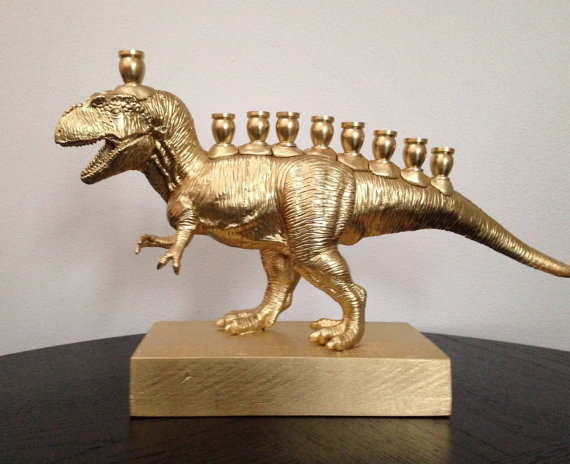
In case you’re not sure, my title for this year’s Hanukah post doesn’t come from the Bible. It comes from something equally sacred, though — a press release from the Galleria.
Sacred? Well, this is the season for shopping, isn’t it?
And in case you’re not sure and haven’t see any of my annual I Hate Chanukah posts, Hanukkah isn’t my favorite holiday.
Chanukah begins each year on the 25th of Kislev. That can fall anytime between the last week in November and the end of December.
The Hebrew calendar is kind of fucked but it works. It’s a lunar calendar. It takes 28½ days for the moon to circle the earth so one month is 28 days and the next is 29 on the Hebrew calendar. That loses days with every 12-month year, so seven out of every 19 years are leap years. But instead of a leap day, we add a 28-day leap month. Next year (later this year on the Hebrew calendar that begins in September) will be leap year so everything after that gets pushed back a month. Expect a late Passover and a late Easter. Yes, Easter is set based on the lunar calendar. Why? I don’t know and have enough to worry about with Hanuka falling on Thanksgiving weekend this year.
Most people are horrified when I tell them Chanukkah is my least favorite holiday. Why, I don’t even have a favorite spelling for the holiday and it can properly be spelled with a Ch or H at the beginning, one or two Ns, one or two Ks and end with or without an H.
Why? Well in Hebrew, spelling doesn’t really count.
Once, I was driving up the coastal highway in Israel between Tel Aviv and Haifa and wanted to stop at Caesarea. Missed the exit that was marked Qasarea. Was in Haifa (or is it Khaifa?) before I realized that spelling just doesn’t matter.
But isn’t it kind of sacrilegious to not love Hanuka? Not at all. Hannukka is the least important holiday on the Jewish calendar.
The most important holidays are those mentioned in the Bible. You know what that includes? My favorite holiday — Shmini Atzeret. The name means Eighth Day of Assembly. The eight-day holiday of assembly is Sukkot, which falls mid-September to mid-October. Like Hanukka, it’s an eight-day holiday. But, the Bible tells us, Shmini is its own holiday and should be observed. What the Bible forgets to tell us is what it observes. How can you not love a holiday that is commanded but we don’t know what it celebrates?
You know what holiday the Bible doesn’t tell us to celebrate? Chanukka. But that makes Shmini, the holiday we don’t know what it’s for, more important than Hanukah.
Why doesn’t the Bible mention Hanukah? The holiday that commemorates 4,000 Israelites whooping the crap out of 40,000 Assyrians in what was the first recorded use of guerrilla warfare (better known as Chanukah) took place after the Bible went to the printer. And the whole the-oil-lasted-for-eight-days story? We know that story’s made up.
And the game we play to celebrate the holiday — spinning the dreidl — is a gambling game. The dreidl is a top with four sides. Spin the top, bet on which letter will land face up and whoever wins gets the money. Nice game for us to teach our kids.
And then there’s the whole “menorah lighting level one near Tiffany” just makes me hate the holiday even more. I’ve never seen Tom Thumb advertise a Rosh Hashanah rugalach sale. Or Macy’s Yom Kippur madness sale. Imagine the advertising opportunities for Nissan on Passover — okay that was obscure: Passover falls on the 15th day of the Hebrew month of Nisan. And no, there’s no month of Toyota.
But if public menorah lightings in shopping malls are your thing, put on your yarmulke and celebrate Hanukah. Enjoy the shopping (even though Chanukkah isn’t the traditional gift-giving holiday. Purim is.) Indulge in the traditional fried food.
I’ll be busy this weekend eating turkey.
— David Taffet, the Hanukah Grinch

